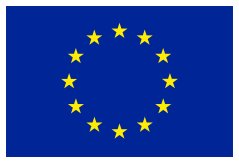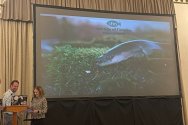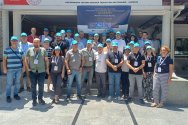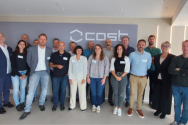EEL SUPPORT
World-wide, eel populations have decreased strongly in numbers since the 1970s. The eel farms depend on catches of wild juvenile eels, or ‘glass eels’, which are then raised to market size. Only a restricted number of glass eels is available for aquaculture. Successful propagation in captivity could supply aquaculture with glass eels and close the production cycle. Eel aquaculture can become sustainable then and, by releasing the natural population from fishing pressure, also contribute to sustainable management of the natural population.
With our international consortium of partners that has tremendous experience in eel research, we aim to share our knowledge and collaborate to force breakthroughs in the propagation of eel in captivity. This is an absolute necessity as the partners currently depend on national funding and lack an international networking umbrella.
The COST Action EEL SUPPORT will use the available networking tools to jointly share the state-of-the-art, to identify knowledge gaps, to develop collaborative strategies to fill these gaps, and to synthesize and review this knowledge in order to: i) design optimal protocols for broodstock conditioning from glass eel to an eel in early puberty, or ‘silver eel’; ii) design optimal protocols to artificially mature and propagate the eel to produce larvae, and iii) design hatchery technology for rearing larvae to the glass eel stage. This way, EEL SUPPORT will contribute to closing the production cycle and supporting sustainable aquaculture and management of natural populations.


![53269c2b-eade-4b3a-a379-1f5358a53643_02_eel_support[1]_cee7a401_750x400.jpg](/upload_mm/f/3/8/2652b142-dfa5-461b-a48a-1f25b8a55cb8_53269c2b-eade-4b3a-a379-1f5358a53643_02_eel_support%5B1%5D_cee7a401_750x400_980x440.jpg)




